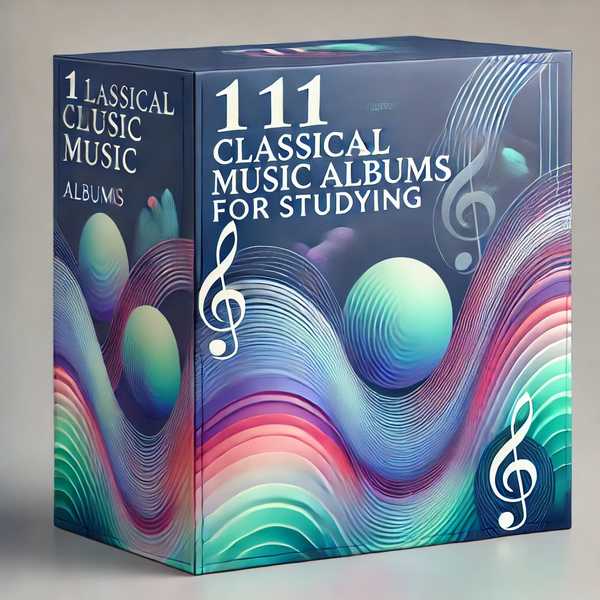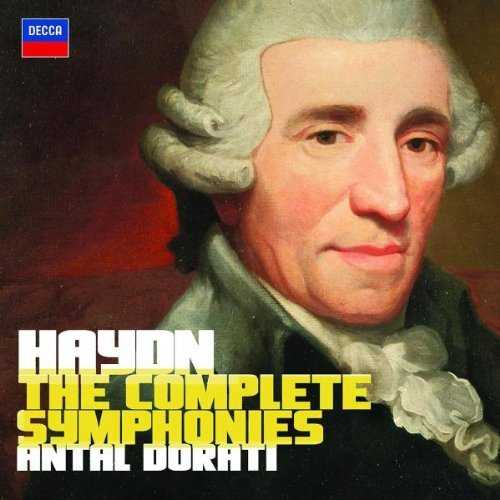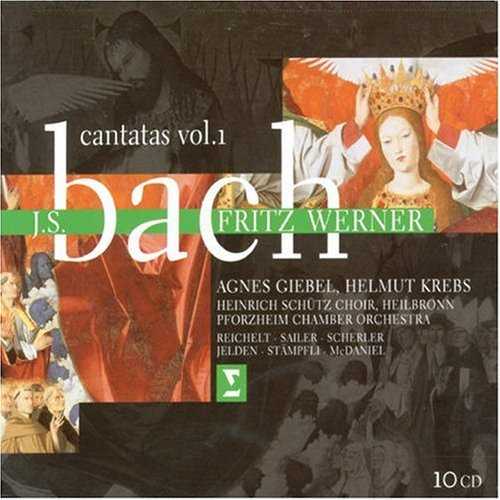
Format: FLAC (tracks)
Number of Discs: 111
Size: 37.3 GB
Recovery: +3%
Scan: cover
001. Classical Music for Studying. (2011)
002. 14 Beautiful Classical Piano Songs for Studying. (2018)
003. 30 Amazing Classical: Music for Studying. (2015)
004. Amazing Classical Music. (2015)
005. Most Popular Classics for Studying, Relaxing and Sleeping. (2014)
006. Beautiful Classical Piano Pieces with Ocean Wave. (2021)
007. Beethoven Music to Increase Brain Power. (2016)
008. Best Classical Guitar for Studying. (2021)
009. Classical Music for Studying. (2016)
010. Best Studying Playlist: Relaxing Classical Music for Study and Focus. (2017)
011. Classical Music for Studying. (2022)
012. Classical Music for Concentration. (2016)
013. Classical Music For Studying. (2016)
014. Best Way to Study. (2016)
015. Calm Cello Music: Classical Cello and Piano Music for Studying, Sleeping, Relaxing. (2023)
016. Classical Study Music. (2020)
017. Calm Classical Music for Focus. (2016)
018. Classical Music for Studying. (2019)
019. Calm Studying Music. (2017)
020. Classical and Study. (2024)
021. Classical Background Music for Studying. (2019)
022. Classical Music for Studying. (2016)
023. Classical Brain Power. (2017)
024. Classical Music for Study & Concentration. (2016)
025. Classical Music for Studying. (2023)
026. Classical guitar for studying. (2020)
027. Dark Academia – Classical Music for Studying. (2021)
028. Great Studying Playlist. (2017)
029. Classical Study Music. (2015)
030. Classical Music for Reading. (2018)
031. Classical Music for Studying. (2022)
032. Best Soft Concentration Music to Listen to while Studying, Reading or Working. (2018)
033. Classical Guitars for Studying. (2015)
034. Classical Music Essentials. (2022)
035. Classical Music for Better Concentration. (2017)
036. True Concentration: Classical Music for Studying. (2015)
037. Classical Music for Brain Powe. (2024)
038. Tranquil Stream Study: Binaural Sounds for Learning. (2023)
039. Classical Music for Increased Focus. (2015)
040. Traditional Classical Music. (2019)
041. Great Masterpieces to Improve Studying and Mental Focus. (2013)
042. The Greatest Classical Music for Studying. (2020)
043. Classical Music for Students. (2015)
044. Studying with Instrumental Music. (2017)
045. Relaxing Music for Studying, Background for Reading, Better Learning. (2017)
046. Music For Relaxation and Calm Study Music. (2019)
047. Songs for Learning, Brain Power, Motivating Music. (2016)
048. Calming Classical Music for Study and Focus. (2017)
049. Classical Study Music. (2018)
050. Relaxing Classical Music for Study, Classical Piano and Concentration Study Music. (2021)
051. Classical Music for Studying & Brain Power. (2019)
052. Classical Music For Studying. (2016)
053. Rain Sounds and Classical Piano For Studying Music. (2019)
054. Classical Music For Studying. (2023)
055. Relaxing Classics Masterpieces to Reduce Stress. (2016)
056. Classical Music for Studying and Concentration, Brain Development, Mozart Effect for Babies and Adults. (2018)
057. Classical Songs for Learning. (2016)
058. Classical Music for Studying Effectively. (2018)
059. Classical Music For Studying Law. (2015)
060. Classical Music for Studying Students. (2020)
061. Classical Music for… Reading, Studying, Brain Power, Working. (2022)
062. Classical Study Music. (2020)
063. Classical Music Playlist for Studying. (2017)
064. Classical Music Playlist for Studying and Concentration. (2018)
065. Classical Piano for Studying. (2019)
066. Relaxing Classical Piano Music for Studying, Sleeping, Relaxing. (2021)
067. Classical Piano Music For Studying, Calm Music For Focus and Concentration Music For Reading. (2018)
068. Classical Piano Playlist. (2020)
069. Classical Study Music Playlist. (2020)
070. Calm Classical Piano Music and Thunderstorm Sounds For Studying Music. (2020)
071. Classical Piano and Ocean Waves Sounds For Studying. (2019)
072. Relaxing Music for Studying, Classical Piano, Background Focus and Reading Music for Concentration. (2021)
073. Classical Studying Music: Concentration for Focus, Study, Background Classical Music for Learning. (2021)
074. Deep Focus Classical Music and Rain Sounds for Study, Background Working Music. (2021)
075. Classical Studying Playlist: Focus Classical Piano Music for Concentration and Memory. (2021)
076. Composer for Focus – Effective Learning, Easier Exam, Classical Sounds for Concentration, Beethoven. (2018)
077. Cool Studying Playlist: Relaxing Classical Music for Study and Focus. (2019)
078. Exam Study – Classical & Concentration Music for Studying. (2021)
079. Fast & Effective Learning – Classical Music for Studying, Mind Exercises, Concentration, Mind Power. (2016)
080. Focus Classical Music for Studying. (2022)
081. Focus Now – Music for Study, Classical Music for Mind, Studying Soundtrack, Easy Learning. (2017)
082. Gentle Piano Music for Studying. (2019)
083. Good Study Music: Best Classical Music for Studying. (2018)
084. Great Studying Playlist: Chilled Classical Music for Study and Focus. (2020)
085. Intense Studying – Classical Songs for Learning, Effective Study, Clear Mind, Train Your Brain. (2017)
086. J. S. Bach: The 50 Greatest Pieces of Relaxing Classical Piano Music for Sleep, Study, Work. (2021)
087. Lofi Study: Aiding Study and Creativity. (2023)
088. Meditation Sessions with Classical Music for Studying. (2015)
089. Modern Classical Music for Studying. (2022)
090. Most Popular Beethoven Songs: Time for Science and Book Reading. (2016)
091. Motivational Music for Study. (2017)
092. Mozart Relaxing Concerto for Studying. (2020)
093. Music for Readers. (2016)
094. Music for Study and Concentration. (2016)
095. New Age Study Classics. (2018)
096. One Hour Classical Piano for Studying with Chopin. (2017)
097. Beautiful Classical Guitar Music. (2020)
098. Piano & Harp BGM for Studying. (2022)
099. Piano for Reading. (2017)
100. Playlist of Classical Music for Studying. (2017)
101. Relaxing Classical Music for Studying. (2014)
102. Relaxing Classical Piano Music for Studying. (2020)
103. Soft Classical Music for Studying. (2022)
104. Soft Classical Music to Study – Mozart Music to Help Focus, Study Time, Classics for Learning. (2017)
105. Study & Learn – Music for Learning, Classical Compilation, Relax & Studing, Improve Memory, Keep Focus. (2018)
106. Study Music Cd 2018 – Classical for Studying. (2018)
107. Classical Music Radio, Studying Music for Brain Stimulation, Total Focus, Enhance Memory. (2015)
108. Classical Piano and Asmr Thunderstorm Sounds For Studying. (2019)
109. Study: Classical Piano Music for Brain Focus. (2022)
110. Classical Piano for Einstein Effect, Be Smarter, Music for Learning, Easily Studying. (2018)
111. Study Study Study. (2015)
classical-music-for-studying-002.rar – 224.6 MB
classical-music-for-studying-003.rar – 297.0 MB
classical-music-for-studying-004.rar – 431.0 MB
classical-music-for-studying-005.rar – 366.1 MB
classical-music-for-studying-006.rar – 276.0 MB
classical-music-for-studying-007.rar – 272.0 MB
classical-music-for-studying-008.rar – 410.8 MB
classical-music-for-studying-009.rar – 1.2 GB
classical-music-for-studying-010.rar – 188.5 MB
classical-music-for-studying-011.rar – 145.4 MB
classical-music-for-studying-012.rar – 501.4 MB
classical-music-for-studying-013.rar – 290.5 MB
classical-music-for-studying-014.rar – 503.2 MB
classical-music-for-studying-015.rar – 189.8 MB
classical-music-for-studying-016.rar – 339.3 MB
classical-music-for-studying-017.rar – 289.7 MB
classical-music-for-studying-018.rar – 446.0 MB
classical-music-for-studying-019.rar – 248.2 MB
classical-music-for-studying-020.rar – 163.7 MB
classical-music-for-studying-021.rar – 594.5 MB
classical-music-for-studying-022.rar – 501.2 MB
classical-music-for-studying-023.rar – 1.5 GB
classical-music-for-studying-024.rar – 202.5 MB
classical-music-for-studying-025.rar – 469.1 MB
classical-music-for-studying-026.rar – 375.3 MB
classical-music-for-studying-027.rar – 499.4 MB
classical-music-for-studying-028.rar – 225.0 MB
classical-music-for-studying-029.rar – 644.1 MB
classical-music-for-studying-030.rar – 198.2 MB
classical-music-for-studying-031.rar – 260.2 MB
classical-music-for-studying-032.rar – 214.0 MB
classical-music-for-studying-033.rar – 214.7 MB
classical-music-for-studying-034.rar – 478.2 MB
classical-music-for-studying-035.rar – 277.3 MB
classical-music-for-studying-036.rar – 1.1 GB
classical-music-for-studying-037.rar – 245.4 MB
classical-music-for-studying-038.rar – 133.0 MB
classical-music-for-studying-039.rar – 1.1 GB
classical-music-for-studying-040.rar – 586.0 MB
classical-music-for-studying-041.rar – 314.3 MB
classical-music-for-studying-042.rar – 1.9 GB
classical-music-for-studying-043.rar – 862.9 MB
classical-music-for-studying-044.rar – 292.6 MB
classical-music-for-studying-045.rar – 312.4 MB
classical-music-for-studying-046.rar – 172.0 MB
classical-music-for-studying-047.rar – 290.2 MB
classical-music-for-studying-048.rar – 221.4 MB
classical-music-for-studying-049.rar – 138.3 MB
classical-music-for-studying-050.rar – 238.4 MB
classical-music-for-studying-051.rar – 491.2 MB
classical-music-for-studying-052.rar – 501.4 MB
classical-music-for-studying-053.rar – 314.1 MB
classical-music-for-studying-054.rar – 235.3 MB
classical-music-for-studying-055.rar – 363.9 MB
classical-music-for-studying-056.rar – 264.4 MB
classical-music-for-studying-057.rar – 456.4 MB
classical-music-for-studying-058.rar – 227.9 MB
classical-music-for-studying-059.rar – 228.2 MB
classical-music-for-studying-060.rar – 124.8 MB
classical-music-for-studying-061.rar – 1.1 GB
classical-music-for-studying-062.rar – 307.7 MB
classical-music-for-studying-063.rar – 249.0 MB
classical-music-for-studying-064.rar – 219.3 MB
classical-music-for-studying-065.rar – 273.1 MB
classical-music-for-studying-066.rar – 148.4 MB
classical-music-for-studying-067.rar – 142.6 MB
classical-music-for-studying-068.rar – 184.3 MB
classical-music-for-studying-069.rar – 182.9 MB
classical-music-for-studying-070.rar – 351.0 MB
classical-music-for-studying-071.rar – 355.4 MB
classical-music-for-studying-072.rar – 171.2 MB
classical-music-for-studying-073.rar – 263.6 MB
classical-music-for-studying-074.rar – 327.0 MB
classical-music-for-studying-075.rar – 350.5 MB
classical-music-for-studying-076.rar – 239.5 MB
classical-music-for-studying-077.rar – 218.2 MB
classical-music-for-studying-078.rar – 194.2 MB
classical-music-for-studying-079.rar – 294.5 MB
classical-music-for-studying-080.rar – 125.1 MB
classical-music-for-studying-081.rar – 175.3 MB
classical-music-for-studying-082.rar – 307.2 MB
classical-music-for-studying-083.rar – 265.0 MB
classical-music-for-studying-084.rar – 117.5 MB
classical-music-for-studying-085.rar – 210.5 MB
classical-music-for-studying-086.rar – 473.4 MB
classical-music-for-studying-087.rar – 71.9 MB
classical-music-for-studying-088.rar – 486.9 MB
classical-music-for-studying-089.rar – 178.9 MB
classical-music-for-studying-090.rar – 294.4 MB
classical-music-for-studying-091.rar – 181.7 MB
classical-music-for-studying-092.rar – 110.8 MB
classical-music-for-studying-093.rar – 502.3 MB
classical-music-for-studying-094.rar – 236.5 MB
classical-music-for-studying-095.rar – 616.6 MB
classical-music-for-studying-096.rar – 232.6 MB
classical-music-for-studying-097.rar – 355.6 MB
classical-music-for-studying-098.rar – 152.6 MB
classical-music-for-studying-099.rar – 375.8 MB
classical-music-for-studying-100.rar – 204.2 MB
classical-music-for-studying-101.rar – 357.6 MB
classical-music-for-studying-102.rar – 111.5 MB
classical-music-for-studying-103.rar – 660.7 MB
classical-music-for-studying-104.rar – 304.1 MB
classical-music-for-studying-105.rar – 245.1 MB
classical-music-for-studying-106.rar – 194.0 MB
classical-music-for-studying-107.rar – 125.5 MB
classical-music-for-studying-108.rar – 318.5 MB
classical-music-for-studying-109.rar – 128.5 MB
classical-music-for-studying-110.rar – 287.5 MB
classical-music-for-studying-111.rar – 371.1 MB
Classical music is most famous as a promotion of cognitive abilities and the best concentration booster. It is useful for studies, thought processes, and retaining attention, especially in surroundings where academics are looking for ways to enhance the learning experience. The connotation of classical music with better cognitive performance has been debated in various studies that emphasize very many benefits of this genre. Therefore, the perception of how studying classical music can improve concentration and thinking processes involved will define this as an effective implement for intellectual development.
The Science Behind Classical Music and Cognitive Enhancement
Neuroscientific research has uncovered rather interesting details regarding the mechanisms by which classical music acts on the human brain. As no surprise, the abovementioned shared areas of the brain, mainly responsible for emotion, memory, and cognition, do get triggered with any sort of music. However, classical music emerges with conspicuous preference when it comes to effects on mental performance. One of the most famous phenomena relating rather directly to a discussion concerning the benefits of music in studying is what has been termed the ‘Mozart effect’. The central aspect to this notion is that, for a brief period after listening to a piece of music written by Wolfgang Amadeus Mozart, one’s capacity for spatial-temporal reasoning— an element pertinent to problems of spatial and logical nature—actually rises.
Classical music may not boost IQ outright, but most studies argue that classical music, in general, provides an ideal environment for learning. Relaxing the listener and kick-starting neural activity, it allows students to apply their minds and focus on what they are learning. This effect is especially important in learning situations which are basically fatiguing by virtue of requiring attention for extended periods—something that might otherwise lead to a wandering or tired mind.
Creating a Calm and Focused Atmosphere
One of the key ways classical music aids in studying is by creating a calming atmosphere that reduces anxiety and helps students concentrate. Many students report feeling overwhelmed by the pressures of academic life, which can hinder their ability to focus on tasks. Classical music, with its slow tempo and lack of lyrics, is well-suited to creating a peaceful ambiance that facilitates concentration. Pieces like Debussy’s “Clair de Lune” or Bach’s “Air on the G String” offer a gentle, rhythmic backdrop that helps to minimize distractions and reduce stress.
The human brain is incredibly responsive to rhythm and sound. Faster, more upbeat music with lyrics can often distract from study, but classical music tends to have a slower tempo that complements a focused state of mind. The lack of lyrics in classical music is another crucial factor; lyrics can engage language-processing areas in the brain, pulling cognitive resources away from the task at hand. In contrast, instrumental classical music allows the brain to remain in a state of cognitive flow, where focus and comprehension are maximized.
Studies suggest that students who listen to classical music while studying experience less stress and anxiety, which in turn improves their ability to absorb and retain information. Lower stress levels also have a positive impact on sleep quality, which further enhances memory consolidation and mental clarity, two factors that are critical for effective learning.
Enhancing Memory and Retention
Memory is an essential part of the learning process, and music in study has been shown to have a profound impact on improving memory retention. Classical music can help activate certain neural pathways in the brain associated with long-term memory. According to various studies, students who listen to classical music during study sessions often find it easier to recall information later, especially when the same music is played during test-taking scenarios. This phenomenon, known as context-dependent memory, suggests that the brain can make associations between information learned and the environment in which it was learned.
For example, if a student listens to Beethoven’s “Moonlight Sonata” while learning about historical dates or scientific concepts, their brain may form connections between the music and the content. When the same piece of music is played later, the student might find it easier to recall the facts associated with that study session. In this way, classical music not only improves the immediate learning experience but also aids in long-term retention.
Boosting Creativity and Critical Thinking
Classical music has also been found to stimulate creative thinking and problem-solving skills, making it an ideal companion for tasks that require brainstorming or deep analysis. Listening to composers such as Chopin, Vivaldi, or Tchaikovsky can engage the brain’s right hemisphere, which is responsible for creative thinking and intuition. By stimulating this part of the brain, classical music enhances one’s ability to think outside the box and approach problems from different angles.
This effect can be particularly beneficial in fields like writing, mathematics, and science, where creativity and critical thinking are essential. Whether a student is working on a complex math problem, crafting an essay, or developing a scientific hypothesis, classical music can help them think more fluidly and approach the task with greater focus and clarity. In this context, classical music in studying becomes a tool for unlocking deeper cognitive processes, making it easier for students to organize their thoughts and solve complex problems.
Classical Music and Time Management
Another significant way classical music can aid in study sessions is by helping with time management. Many students struggle with staying on task for extended periods, often losing track of time or becoming distracted by social media and other interruptions. Classical music, with its structured and consistent rhythms, can provide a natural sense of pacing that helps students maintain focus over time. For instance, many students find it helpful to use classical music as a timer, studying for the length of a specific composition or symphony before taking a break.
This strategy aligns with the Pomodoro Technique, a time-management method that breaks work into intervals (usually 25 minutes), followed by a short break. By pairing each work session with a classical music piece of a similar length, students can stay on track without needing to constantly check the clock. In this way, classical music serves as a gentle, auditory cue that keeps students mindful of their time while promoting sustained concentration.
Selecting the Right Classical Music for Studying
Not all classical music is created equal when it comes to studying. The key to harnessing the power of music in study lies in selecting compositions that match the desired level of concentration and mental clarity. Baroque music, for instance, is particularly effective for study purposes due to its steady, structured rhythm and harmonies. Composers like Bach, Handel, and Vivaldi are known for their intricate yet calming compositions, which are ideal for tasks that require high levels of focus and precision.
On the other hand, Romantic-era music, which is more emotional and dynamic, can be helpful for creative tasks that involve deep thinking or emotional engagement. Pieces by composers like Schubert, Brahms, or Chopin can provide a sense of inspiration and emotional depth that fuels creative thought. However, students should avoid overly dramatic or intense compositions, as these can sometimes distract from the task at hand.
Incorporating classical music in studying routines can offer a range of cognitive benefits, from reducing stress and improving memory retention to enhancing creativity and problem-solving skills. Whether students are looking for a way to concentrate better, manage their time more effectively, or improve their overall learning experience, classical music provides a powerful and accessible tool. By selecting the right compositions and creating a peaceful study environment, students can unlock the full potential of music in study, transforming their academic pursuits into more productive and enjoyable experiences.



